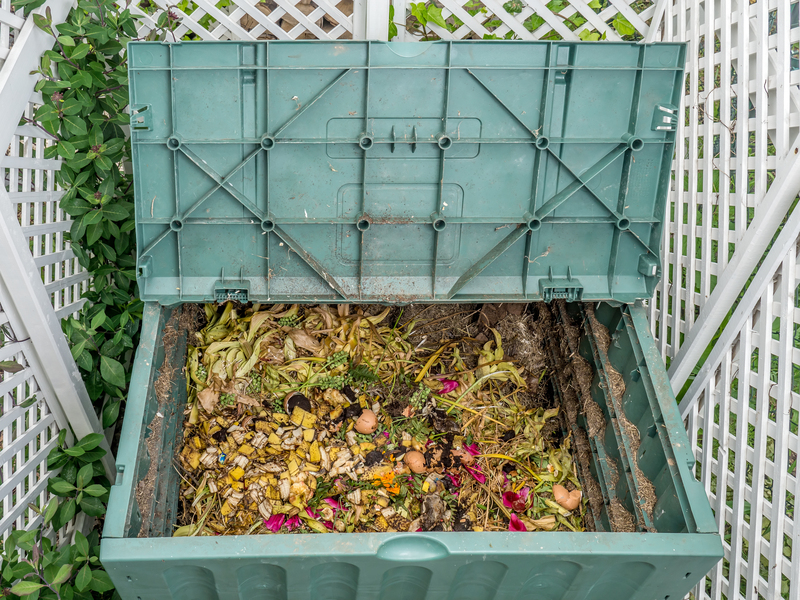How Irresponsible Waste Practices Harm Ecosystems
In today's rapidly evolving world, one of the pressing concerns threatening the environment is the reckless disposal of waste. Improper waste management can have devastating effects on our ecosystems, impacting flora, fauna, and even human health. This comprehensive guide delves into how these practices harm ecosystems and offers insights into sustainable waste management.
The Importance of Ecosystems
Ecosystems play a crucial role in maintaining ecological balance and supporting life. They comprise various living organisms interacting with each other and their physical environment.
- Biodiversity: Healthy ecosystems house a rich variety of species that contribute to the planet's biodiversity.
- Ecosystem Services: These systems provide vital services such as clean air and water, pollination of crops, and decomposition of waste.
- Climate Regulation: Ecosystems act as buffers against climate change, absorbing carbon dioxide and releasing oxygen.
Given these essential functions, it's evident that maintaining the health of ecosystems is paramount.

What are Irresponsible Waste Practices?
The term irresponsible waste practices refers to actions that lead to inefficient and harmful disposal of waste. These can include:
- Open Dumping: Disposing of waste without any treatment, often in undesignated areas.
- Illegal Burning: Incinerating waste, which releases toxic gases into the atmosphere.
- Poorly Managed Landfills: Inadequate containment of waste, leading to leachate contamination and air pollution.
- Over-reliance on Single-use Plastics: Widespread use and improper disposal of plastics that do not biodegrade.
Impacts on Ecosystems
Soil Degradation
Irresponsible waste disposal can lead to severe soil degradation. When waste materials, especially those containing toxic substances, are dumped on land, they can seep into the soil. This contamination affects:
- Soil Fertility: Toxic waste harms beneficial microorganisms, reducing nutrient availability for plants.
- Plant Growth: Contaminated soil can stifle healthy plant growth, affecting agriculture and native vegetation.
Water Pollution
Leachate from landfills and dumping sites can infiltrate water bodies, causing water pollution. This pollution can have catastrophic impacts on aquatic ecosystems:
- Habitat Destruction: Pollutants can alter water chemistry, making it uninhabitable for many species.
- Bioaccumulation: Toxic substances accumulate in aquatic organisms, affecting entire food chains.
- Health Risks: Contaminated water can become a health hazard for communities reliant on these water sources.
Air Pollution
Burning waste is a prevalent practice used to reduce its volume, but it significantly contributes to air pollution. Toxic fumes released into the atmosphere can lead to:
- Respiratory Issues: Inhalation of polluted air can cause asthma, bronchitis, and other respiratory complications in humans and animals.
- Climate Change: Emissions of greenhouse gases from waste incineration exacerbate global warming.
Impact on Wildlife
Irresponsible waste management severely impacts wildlife, leading to habitat loss and health issues:
- Physical Harm: Animals often ingest or become entangled in plastic waste, leading to injury or death.
- Disrupted Habitats: Dumping sites encroach on natural habitats, displacing animals and reducing their populations.
- Food Chain Disruption: Bioaccumulation of toxins in plants and animals disrupts food chains, affecting predator and prey relationships.

Steps Towards Sustainable Waste Management
Addressing the detrimental effects of waste on ecosystems requires a shift towards sustainable waste management practices.
Reduce, Reuse, Recycle
The three Rs form the cornerstone of reducing waste impact:
- Reduce: Minimize waste generation by opting for more sustainable consumption habits.
- Reuse: Extend the life of products by reusing items or refurbishing them for new purposes.
- Recycle: Convert waste into reusable material, reducing the need for raw resources.
Use of Biodegradable Products
Switching to biodegradable products can significantly cut down on pollution:
- Composting: Organic waste can be composted, transforming it into nutrient-rich soil amendments.
- Bioplastics: These are made from natural materials and break down more easily than traditional plastics.
Strong Waste Regulation and Enforcement
Effective legislation is paramount in curbing irresponsible waste disposal:
- Policy Implementation: Enforce existing laws on waste management, and penalties for violators.
- Monitoring and Compliance: Establish agencies to monitor waste disposal and ensure compliance.
Conclusion
Irresponsible waste practices pose a significant threat to ecosystems across the globe. By understanding the impact of these actions and adopting sustainable waste management strategies, we can work towards a healthier planet. Every action counts. From reducing waste generation to advocating for stricter enforcement of environmental regulations, it is crucial for individuals, communities, and governments to collaborate for a sustainable future.